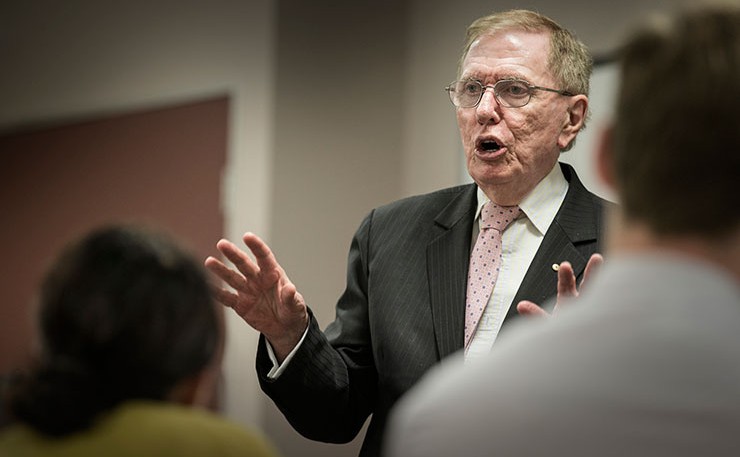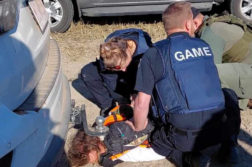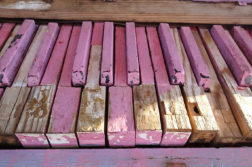He’s widely known as one of the most compassionate and forward thinking Judges ever to sit on the High Court. But as Michael Brull explains, former Justice Michael Kirby appears to have a blind spot when it comes to the law as it applies to Palestinians.
Former High Court of Australia Justice Michael Kirby gave an interview to the Australian Jewish News earlier this month (1 September 2017), where he singled out for praise two Israeli judges, Moshe Landau and Aharon Barak.
Kirby went on note that he was “very impressed by Israel, of course – by a country that has a rule of law principle in its constitution, that has liberal and forward-looking judges and upholds the principles that there are no black holes in the law. That is what Justice Barak constantly said, ‘No black holes. We don’t have areas where the writ of the courts doesn’t run to.’”
Former Justice Kirby said that he has visited Israel “several times”, and even “sat on the old Supreme Court of Israel” at the invitation of former President of the Court from 1980-82, Justice Landau. Kirby said Landau was “a wonderful man”. In Australian jurisprudence, Kirby is widely regarded as among the most liberal justices that has ever sat on the High Court, and is known for his passionate dissents in favour of liberal values and international law.
The Israeli Supreme Court, on the other hand, is generally regarded as a rubber stamp for almost every egregious crime of the Israeli occupation. This includes the two men Justice Kirby singles out.
One of them handed down a judgment where he legitimised hostage taking. The other – who Kirby regards as “wonderful” – effectively legalised torture. Kirby’s comments also included factual errors – Barak was President of the Supreme Court years after Landau, but didn’t succeed him, and Israel doesn’t have a formal constitution.
The “wonderful” President of the Supreme Court who legalised torture
In 1967, Israel conquered the West Bank and Gaza, which became known as the Occupied Palestinian Territories. From the beginning, the occupation was brutal. Right-wing Israeli historian Benny Morris, in a history of the Israeli-Arab conflicts, wrote:
“Like all occupations, Israel’s was founded on brute force, repression and fear, collaboration and treachery, beatings and torture chambers, and daily intimidation, humiliation, and manipulation… Military administration, uncurbed by the civil rights considerations that applied in Israel, possessed ample measures to suppress dissidence and protest. These included curfews; house arrest, with resulting loss of wages; judicial proceedings, ending in prison terms or fines — the work of the military courts in the territories, and the Supreme Court which backed them, will surely go down as a dark age in the annals of Israel’s judicial system — or expulsions; administrative detentions, or imprisonment without trial, for renewable six-month terms; and commercial and school shutdowns, usually in response to shopkeepers’ strikes or disturbances by students.”
In 1987, Moshe Landau headed a Commission to look into how Israeli intelligence organisation the Shabak (GSS, or ISA) interrogated Palestinians. The Landau Commission found that the “effective interrogation of terrorist suspects is impossible without the use of means of pressure”. Thus, Landau wrote that when ordinary interrogation techniques “fail to achieve their goal, the use of a moderate degree of physical pressure is unavoidable”.
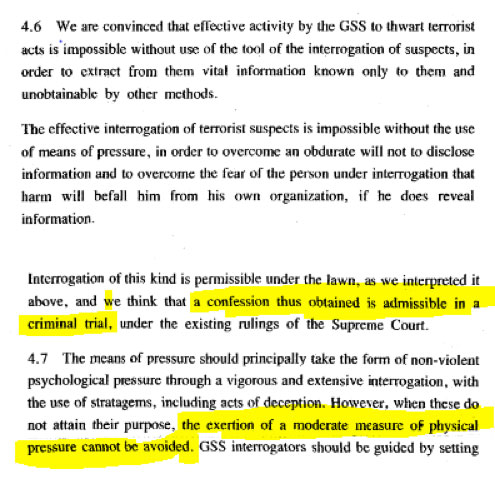
Unsurprisingly, Israeli intelligence took this as a green light for torture. The Public Committee Against Torture in Israel (PCATI) observed that “the Israeli security forces tortured thousands of Palestinian detainees every year. PCATI estimates that almost all interrogees were subjected to at least one form of torture during their interrogation”. The Landau Commission didn’t publicly release its recommended forms of torture (“moderate physical pressure”). Yet PCATI observed that standard forms include:
- Shackling interogees in painful stress positions for hours and even days at a time with a wet, foul-smelling bag covering their heads.
- Isolation in solitary confinement.
- Beatings.
- Violent shaking – when an ISA interrogator grabs the interrogee’s shoulders or shirt lapels and shakes his body and head violently back and forth.
- Sleep and food deprivation.
- Exposure to extreme heat or cold.
- Shackling to a small, slanted chair.
- Cursing and psychological degradation.
- Exposure to loud music.
- Threats to the detainee or his/her family.
- Deprivation of basic sanitary conditions and changes of clothing.
- Isolation from the outside world (including attorney and relatives), often for months at a time.
PCATI noted: “These methods caused often irreversible psychological damage and bodily injury, and in some cases even death.”
In 1992, the Red Cross complained that Israel’s form of “physical and psychological pressure” breached the Geneva Conventions. In 1994, the United Nations Committee Against Torture responded that that Landau Commission’s notion of “moderate physical pressure” being lawful was “completely unacceptable to this Committee”. Also in 1994, Human Rights Watch wrote a report on Israeli interrogation methods. They found that “Within one or two days of their arrest, persons taken to GSS (Israeli intelligence) interrogation wings are placed in a universe of discomfort, pain, humiliation and threats”.
It found that at “all stages of GSS interrogations, the methods of torture and ill-treatment tend to follow a well-defined set of steps and guidelines. Interrogation methods are selected to inflict extreme physical pain and mental anguish without causing lasting or traceable physical injury”.
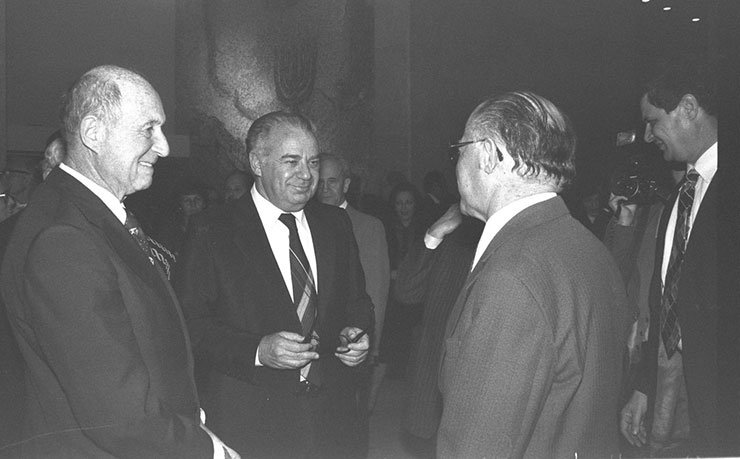
HRW observed: “Our investigation also found that torture and abuse were more the rule than the exception, and that tens of thousands of Palestinians had suffered abuse at the hands of GSS and the IDF.”
This is just one part of the legacy of former President of the Israeli Supreme Court, Moshe Landau. Who Kirby called “a wonderful man”, seemingly an example of Israel’s “liberal and forward looking judges”.
The other Israeli justice who also thought torture was okay
The other Israeli justice cited by Kirby was Aharon Barak, who was also a President of the Israeli Supreme Court. One of the judgments Barak is well-known for was his 1999 judgment on torture. Whilst Landau had effectively legalised it on a grand scale in the Occupied Territories, Barak rejected the Landau Commission’s position.
In 1999, the Israeli Supreme Court ruled mostly in favour of a petition to ban torture by PCATI and other human rights organisations.
In a normal liberal democracy, this judgment would have been straightforward: the court would have said that torture is never permissible, and was henceforth banned. In Israel, it wasn’t.
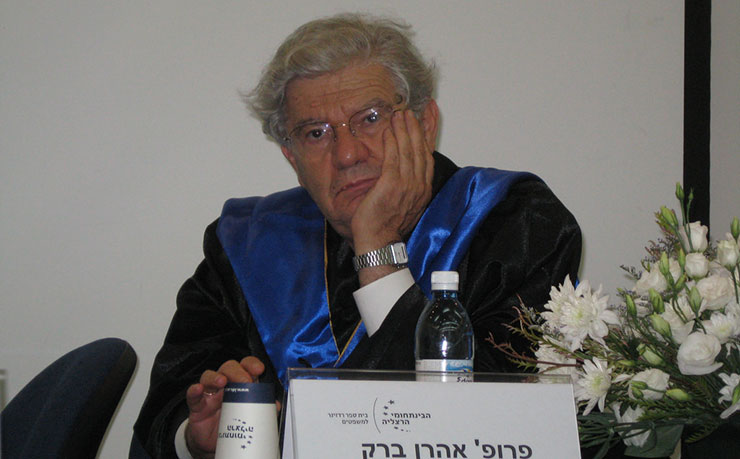
The court wouldn’t rule that the methods of interrogation under review constituted torture, or even ill-treatment. Human rights groups thought this might be because if the court admitted that torture had occurred, they would have a duty under international law to punish the perpetrators.
PCATI observed that whilst the judgment “forbade the use of several torture methods, [it]nevertheless left significant loopholes which enable the ongoing use of torture and ill-treatment in ISA interrogations. The primary loophole is the ‘necessity of defense,’ which under certain conditions absolves interrogators of criminal liability for using prohibited interrogation methods including physical abuse of the detainee.”
The “necessity” defence arises in what are alleged to be “ticking time-bomb cases”.
PCATI’s reports published in the years since the HCJ ruling have revealed that “numerous Palestinians” are subjected to “torture and ill treatment” by the Shabak. PCATI catalogued them:
“– Routine methods including sleep deprivation, shackling to a chair in painful positions, beatings, slapping and kicking, threats, curses and humiliation.
– Special methods such as bending the body in painful stress positions, prolonged shackling with handcuffs behind the body, deliberate tightening of handcuffs, stepping on handcuffs, application of pressure on various limbs, forced squatting in the “frog” position, choking, violent shaking and other means of violence and degradation (pulling out of hair, spitting, etc.).
– Subhuman detention and imprisonment conditions: sleep deprivation, exposure to extreme heat or cold, constant exposure to artificial light, detention under sub-human conditions contravening the basic standards outlined by the UN (prison cells with cockroaches and mice, abhorrent sanitary conditions, rations too close to the hole in the ground which serves as toilet, failure to provide warm water or a change of clothes, weak artificial lighting all day and so on).
– Psychological torture and damage through the use of threats or the creation of false scenarios to pressure detainees, often using the interrogee’s family members.”
Likewise, Israeli human rights organisation B’Tselem found that:
“relying on the “ticking time-bomb” exception, ISA agents have continued to use interrogation methods that constitute abuse and even torture. A number of join[t]reports by B’Tselem and HaMoked: Center for the Defence of the Individual, based on hundreds of affidavits and testimonials given by Palestinians who had undergone ISA interrogations indicate that the ISA still routinely employs psychological and physical abuse in interrogations. … This combination of conditions both in and outside the interrogation room constitutes abuse and inhuman, degrading treatment, at times even amounting to torture. It has been used systematically against Palestinians interrogated by the ISA…”
There was a decline in torture after Barak’s 1999 judgment. However, Barak did not ban torture entirely. The effect of his weak and inadequate judgment was that by 2003, Amnesty International observed that “the torture of Palestinians held by the GSS was once again widespread”.
Using hostages as bargaining chips is okay too – liberal Israeli Justice
In Beyond Chutzpah, US scholar Norman Finkelstein examines the record of the Israeli Supreme Court. One particularly shocking example dates from 1997. Israel was seeking a prisoner exchange with Hezbollah in Lebanon. It was holding 21 Lebanese people in detention. President of the Court at the time, Aharon Barak, ruled that “a detention is legal if it is designed to promote State security, even if the danger to State security does not emanate from the detainees themselves,” and that “detention of the appellants for the purpose of release of the captured and missing soldiers is a vital interest of the State.”
Let me underline that. The detention of the people was not because of any threat emanating “from the detainees themselves”. It was “for the purpose” of releasing Israeli soldiers.
B’Tselem reacted with disgust: “Israel’s High Court of Justice recently approved the administrative detention of Lebanese nationals as ‘bargaining chips’ in negotiations for the return of missing Israeli soldiers. The taking of hostages is a patently illegal act under international law. Now Israel – usually at the forefront of the international struggle against terrorism – has granted legitimacy to one of the trademarks of terrorist groups around the world.”
The United Nations Human Rights Committee similarly expressed concern at “the administrative detention of some Lebanese persons who are held as bargaining-chips, and do not threaten State security”. Amnesty said that the ruling was “contemptible and explicitly legitimizes hostage-taking”.
In 2000, Barak changed his mind. According to Finkelstein, Barak conceded in his judgment that that “there is probably no State in the Western world that permits an administrative detention of someone who does not himself pose any danger to State security”. He also admitted that “holding persons as ‘bargaining cards’ actually means holding them as ‘hostages’”. By his own admission, Justice Barak legalised Israel taking people as hostages.
And why did he change his mind? Finkelstein writes that one of Barak’s reasons was his conclusion that “there is no probability or even a reasonable possibility that the continued detention of the petitioners would lead to the release of the captured and missing soldiers”.
And so on
For reasons of brevity, I have just reviewed the record of Justices Barak and Landau on two issues. Given the position of Barak on taking hostages and using them as bargaining chips, and Landau’s position on torture, readers can imagine their broader record in relation to the human rights of Palestinians. As noted previously, Benny Morris singled out the Supreme Court for censure in its role in enforcing the occupation, and he is right to do so.
Academic David Kretzmer wrote a study of the Israeli Supreme Court and the Occupied Territories. He concluded: “In its decisions relating to the Occupied Territories, the Court has rationalized virtually all controversial actions of the Israeli authorities, especially those most problematic under principles of international humanitarian law.” These include legitimising deportations by military authorities, punitive house demolitions, the establishment of settlements, and administrative detention.
In 2006, Justice Kirby identified Guantanamo Bay as a “legal black hole”. As noted, he thought Barak deserved special praise for opposing legal black holes. Yet Israel has a prison facility known as Israel’s Guantanamo, Facility 1391. Detainees aren’t told where they are, and are denied visitors. Though its present facility was set up in the 1980s, Israel has tried to keep it secret. It refuses to disclose who is being detained their, their conditions, or even to let Red Cross visit.
In 2003, HaMoked petitioned the Supreme Court to shut the camp down. The Supreme Court, unsurprisingly enough, rejected that petition.
Kirby distinguished himself by his defence of vulnerable minorities as a Justice on the High Court of Australia. Oftentimes he did so in complete isolation, as six other Justices ruled on the other side of the question, against the rights of asylum seekers and other groups.
One of my favourite judgments by Justice Kirby was in the case of Wurridjal. Handed down in February 2009, a group of Aboriginal people had tried to plead their case against Northern Territory Intervention legislation before the High Court. Six Justices refused to even give them a hearing, dismissing them before they could get to trial.
Kirby issued his final, passionate dissent:
“If any other Australians, selected by reference to their race, suffered the imposition on their pre-existing property interests of non-consensual five-year statutory leases, designed to authorise intensive intrusions into their lives and legal interests, it is difficult to believe that a challenge to such a law would fail as legally unarguable on the ground that no “property” had been “acquired”. Or that “just terms” had been afforded, although those affected were not consulted about the process and although rights cherished by them might be adversely affected. The Aboriginal parties are entitled to have their trial and day in court. We should not slam the doors of the courts in their face.”
It seems as though Justice Kirby’s days of dissent are over. If any Australian had been subjected to torture – or detained as a “bargaining chip” – because of a fellow judge, it seems unlikely that Justice Kirby would have stayed silent, or praised them as “wonderful”, “liberal and forward-looking”.
Whilst Kirby hasn’t quite slammed the doors of the court in their face, it is sad that he seems unwilling to give a fair hearing to the Palestinians.
Donate To New Matilda
New Matilda is a small, independent media outlet. We survive through reader contributions, and never losing a lawsuit. If you got something from this article, giving something back helps us to continue speaking truth to power. Every little bit counts.

